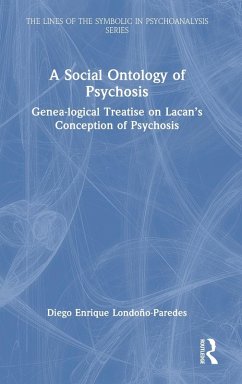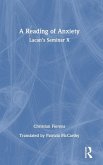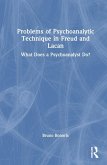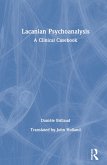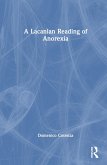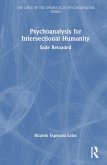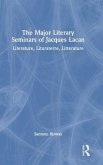In A Social Ontology of Psychosis, Diego Enrique Londoño-Paredes explores how to interpret and apply the concept of the signifier of the Name-of-the-Father in Lacanian theory, particularly in the context of working with psychosis.
Hinweis: Dieser Artikel kann nur an eine deutsche Lieferadresse ausgeliefert werden.
Hinweis: Dieser Artikel kann nur an eine deutsche Lieferadresse ausgeliefert werden.
"This exceptionally rich book explores the multifaceted role and significance of the father in Lacan's work. Diego Londoño seamlessly connects logical formulations with socio-cultural reflections and clinical considerations, making this book not only a comprehensive discussion of Lacan's work but also a reference on how to apply it in contemporary practice."
Stijn Vanheule, Ghent University
"In A Social Ontology of Psychosis, Londoño provides a logical and genealogical account of the function and place of the father in civilization through a careful analysis of the various versions of the father in psychoanalytic theory as developed by Sigmund Freud and Jacques Lacan. His logico-genealogical reading of Lacan's theory of the Name-of-the-Father provides a contemporary commentary on psychotic subjectivity in civilization in both pathological and non-pathological forms. Moreover, in developing Lacan's theory of the Name-of-the-Father in relation to logic, set theory, the big Other, language and myth he provides an intriguing response to what may have occurred in Lacan's 1963 abandoned seminar, The Names of the Father."
Jonathan Redmond, author, Ordinary Psychosis and the Body
Stijn Vanheule, Ghent University
"In A Social Ontology of Psychosis, Londoño provides a logical and genealogical account of the function and place of the father in civilization through a careful analysis of the various versions of the father in psychoanalytic theory as developed by Sigmund Freud and Jacques Lacan. His logico-genealogical reading of Lacan's theory of the Name-of-the-Father provides a contemporary commentary on psychotic subjectivity in civilization in both pathological and non-pathological forms. Moreover, in developing Lacan's theory of the Name-of-the-Father in relation to logic, set theory, the big Other, language and myth he provides an intriguing response to what may have occurred in Lacan's 1963 abandoned seminar, The Names of the Father."
Jonathan Redmond, author, Ordinary Psychosis and the Body

